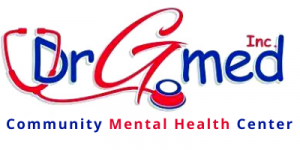- Home
- About Us
- Crisis Line & Resources
-
Our Services
- Psychiatry
- Psycho & Behavioral Therapy
- After School Program
- Special Education Program
- Occupational Therapy
- Physical Therapy
- Respiratory Therapy
- Speech Therapy
- Conditions Treated
- Co-occurring Disorders Treatment
- DOT Certification
- General Medicine
- IQ Testing
- Psychological Evaluation
- SPECIALIZED SERVICES
- Treatment Gambling Addiction
- Hospital Services
- Courses
- Compliance
- Employees
- Blog
- Contact Us

Psycho & Behavioral Therapy
Medicaid, Medicare & Commercial/Private Insurances!
Applied Behaviorial Analysis, ABA
Applied behavior analysis, also called behavioral engineering, is a scientific technique concerned with applying empirical approaches based upon the principles of respondent and operant conditioning to change behavior of social significance.
Prominent ABA therapy include discrete trial training (DTT), modeling, the Picture Exchange Communication System (PECS), and reinforcement systems.
What Conditions Benefit From Applied Behavior Analysis?
- Attention Deficit Hyperactivity Disorder. Patients who suffer from attention deficit hyperactivity disorder (ADHD) are generally hyperactive and have difficulty concentrating and controlling impulsive behaviors.
- Autistic Spectrum Disorder.
- Obsessive Compulsive Disorder.
- Post-Traumatic Stress Disorder.
Behavioral Counseling
Impulse control, Protracted Abstinence: Anhedonia, anxiety and depression. Relapse prevention, resistance of peer pressure and self-respect. Assessment of previous/current high-risk situations (triggers) and plan for potential slips. Adjust structure to fit progress.
Psychotherapy
Individual Therapy
Refusal training, psychoanalysis, psychodynamic, behavior, cognitive, humanistic and integrative/holistic)
Group Therapy
Wilderness, Adventure, Yoga Therapy, Alcoholic Anonymous sessions
Complementary Therapy
Nonverbal ways of healing: Art therapy, music therapy and animal assisted therapy
Psychosocial Rehabilitation, PSR
PSR is a treatment approach designed to help improve the lives of people with disabilities. The goal of psychosocial rehabilitation is to teach emotional, cognitive, and social skills that help those diagnosed with mental illness live and work in their communities as independently as possible.
Support Groups
Peer Support Groups
Alcoholics anonymous, opioids anonymous, bereavement, medical, weight loss, life transitions.
Spiritually Groups
Referral. Whether the patient is religious or not, recovery involves making changes in their values and their goals in life, and people who have spiritual resources to support them are usually more successful in recovery. Spiritual support systems help keep patients grounded and on a positive mental track.
Meditation Groups
If a patient is not religious, meditation or other positive groups can serve him or her well as an additional external focal point that is not connected to treatment.
Courses
Impulse control course
Relapse prevention
Resistance of peer pressure
Self-respect
Anger management
Domestic Violence
Parenting, skills development
Negative impact of alcohol on body’s physiology
Negative impact of opioids on body’s physiology
Negative impact of cannabis on body’s physiology
Negative impact of stimulants on body’s physiology
Psychoeducation

